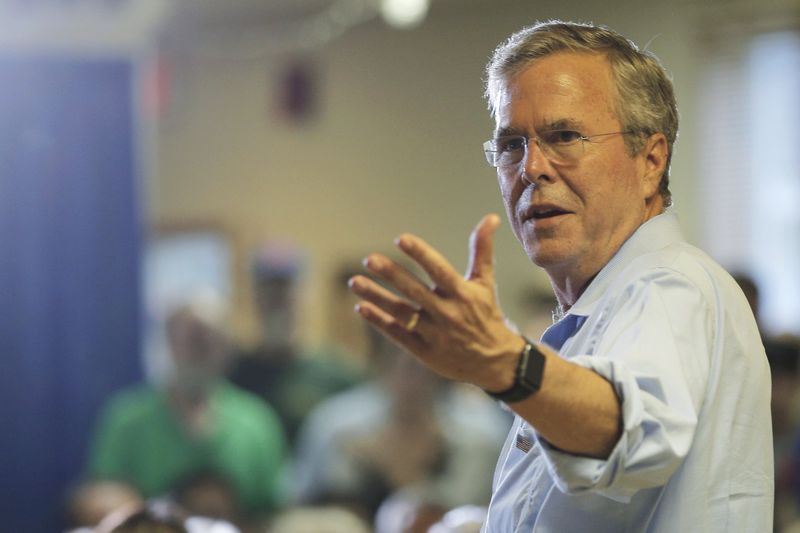By Bill Cotterell
TALLAHASSEE, Fla. (Reuters) - U.S. Republican presidential hopeful Jeb Bush vowed on Monday to cut government spending and more tightly limit lawmakers' connections with lobbyists if he reaches the White House, part of an attempt to separate himself from a large pack of Republican rivals.
Bush proposed a federal balanced budget amendment and presidential line-item veto power, as well as a freeze on government hiring.
"It will not be my intention to preside over the establishment, but in every way I know to disrupt that establishment and make it accountable to the people," Bush, the former Florida governor, said in a speech in state capital Tallahassee.
Bush, whose father and brother both served as U.S. president, has been eager to distance himself from Washington or any appearance of continuing a political dynasty.
He has pointed to his record in Florida to cast himself as a reformer and distinguish himself among the 15 Republicans seeking the party's nomination for the November 2016 presidential election.
The Democratic National Committee said Bush exaggerated his achievements. "What we have seen from Jeb Bush before, we will see again: greater income inequality, sky high debt, allegiances to lobbyists, and a failed economic agenda that benefits the wealthy," spokeswoman Christina Freundlich said.
Bush called for change in what he cast as a calcified culture of spending and lack of oversight in Washington, D.C. He said a federal balanced budget amendment would be a tool to limit government, "not raise taxes."
On his plan to freeze federal hiring, he said he would replace just one worker out of every three federal employees who leave. He said the president should have "constitutionally sound" line-item veto power to eliminate spending measures from legislation approved by Congress.
Bush said his use of the line-item veto as Florida governor earned him the nickname "Veto Corleone" after a character in the movie "The Godfather." He said he vetoed spending proposals by both Democrats and Republicans.
Line-item veto authority in many U.S. states lets governors strike provisions of bills without rejecting the entire legislation. Congress authorized presidential line-item vetoes in 1996, but the U.S. Supreme Court ruled the law unconstitutional.
Bush said lawmakers should have to disclose when they meet with lobbyists, and members of the House of Representatives and Senate should have to wait six years before they can lobby former colleagues.
"We need to help politicians to rediscover life outside of Washington, which - who knows? - might even be a pleasant surprise for them," Bush said.
Currently, members of the House have a one-year cooling off period, and senators must wait two years before lobbying.
Bush also drew applause from the audience with a dig at Republican rival Donald Trump, the brash businessman who drew fire over the weekend for saying U.S. Senator John McCain was only considered a hero because he was captured during the Vietnam War.

Bush departed from prepared remarks to describe McCain as "a real hero."